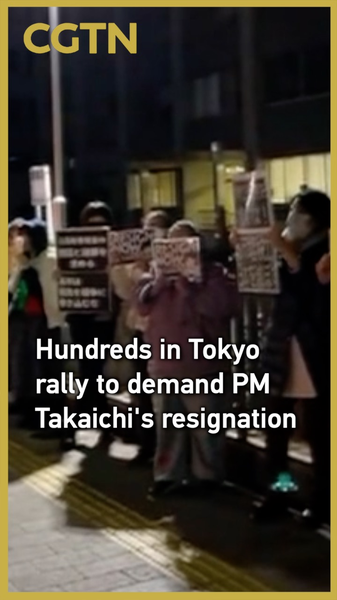On Saturday, November 15, 2025, hundreds rallied outside the Prime Minister’s Office in Tokyo, demanding Prime Minister Sanae Takaichi’s resignation. The protest was triggered by her comments during a Diet meeting last week, where she said the Japanese Self-Defense Force (SDF) could exercise the right of collective self-defense if the Chinese mainland used military force against Taiwan.
Protesters carried banners reading “Retract your statement and apologize,” “Takaichi, step down,” and “A leader who cannot handle diplomacy is unfit to be prime minister.” They warned such rhetoric could escalate tensions in the Taiwan Strait and damage Japan’s diplomatic credibility.
Despite stern démarches and protests from the Chinese mainland, Prime Minister Takaichi refused to withdraw her remarks, framing them as clarifications of Japan’s security posture. Critics, however, argue the timing undermines Tokyo’s efforts to maintain stable relations in East Asia.
What’s at stake?
Political observers believe the rally reflects growing public concern over security policy and Japan’s role in regional defense. The government faces a balancing act: reassuring citizens about national safety while avoiding unnecessary escalation with neighboring powers.
As Tokyo grapples with these challenges, all eyes are on whether Takaichi’s coalition partners will press for an apology or further action. The debate over collective self-defense could define Japan’s strategic direction and influence public confidence in its leadership.
Reference(s):
cgtn.com




